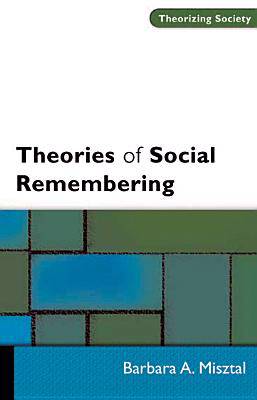
- Retrait gratuit dans votre magasin Club
- 7.000.000 titres dans notre catalogue
- Payer en toute sécurité
- Toujours un magasin près de chez vous
- Retrait gratuit dans votre magasin Club
- 7.000.0000 titres dans notre catalogue
- Payer en toute sécurité
- Toujours un magasin près de chez vous
Description
Through a synthesis of old and new theories of social remembering, this book provides the first comprehensive overview of the sociology of memory. This rapidly expanding field explores how representations of the past are generated, maintained and reproduced through texts, images, sites, rituals and experiences.
Spécifications
Parties prenantes
- Auteur(s) :
- Editeur:
Contenu
- Nombre de pages :
- 168
Caractéristiques
- EAN:
- 9780335208319
- Date de parution :
- 16-07-03
- Format:
- Livre broché
- Dimensions :
- 153 mm x 228 mm
- Poids :
- 316 g

Les avis
Nous publions uniquement les avis qui respectent les conditions requises. Consultez nos conditions pour les avis.






